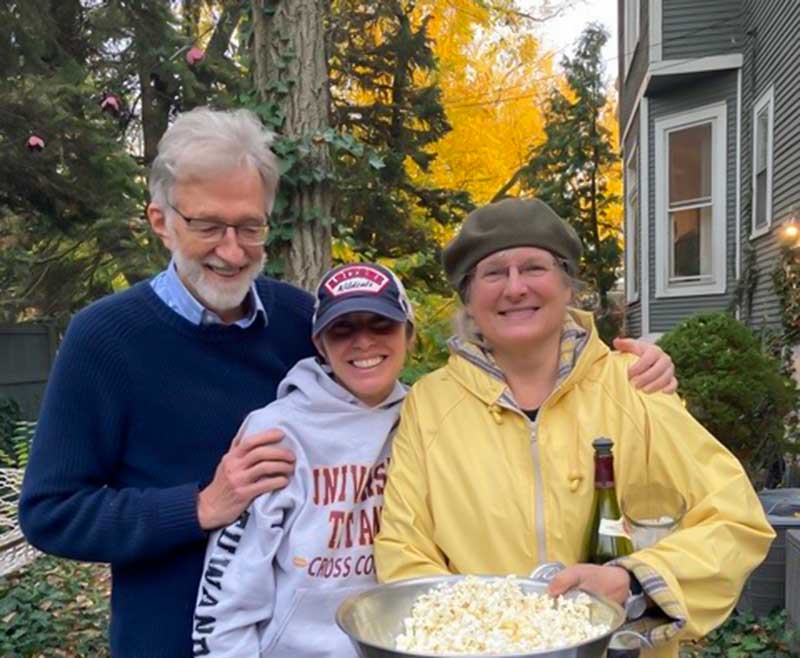While growing with the times, remembering the value of our roots will keep us feeling whole.

Time: It has shifted.
We are living amongst a new generation of believers. But belief is far different today than it used to be. It’s a belief in oneself, and in the power of connection with other like-minded believers. Take a higher power out the equation. Today’s believers embody an I can do anything attitude.
And it’s this power of will and confidence that generate movement and growth. That’s why we’ve had such an enormous amount of it (in most fields) within these last fifteen to twenty years.
Time: A Fertilizer for Dis-ease.
Growth and progress carry with it unimaginable beauty, but also a bunch of trash. Some of us have more freedom than we used to. Women, for example, have cracked a myriad of hurdles and bones working to climb a man-made mountain. True, we haven’t made it up yet, but, we have more freedom than we ever did. I think others can identify with these strides as well. With our freedom in tow, our advances in technology, and our boisterous economy, most of us no longer have need for our ingrained survival instinct. Thus, we gravitate to the systems that have been created to make our lives easier.
We grab food from the grocery, we pick up health items at the pharmacy, and without the constant need to fight to survive, to be equal, to hunt and gather, we find ourselves with time. It’s true that in our digital culture, we’ve filled this time with expectations of responding to emails and working most days (and late hours). Still, we have time to build unrest / dis-ease inside of our minds, which then starts to affect our physical body.
Time: Our Disregard for Ancient Wisdom
Although the beginnings of modern / western medicine date back to the end of the industrial revolution,[1] it wasn’t until the 1900s (with the formalization of pharmacology) that access to ancient traditions and practices were weeded out of modern treatments,[2] and holistic practice of treating ailments transitioned into our current allopathic treatment of symptoms alone.
Today, ancient medicinal wisdom is considered alternative. And also today, despite the immense amount of belief and drive there is to be well and successful, Americans suffer because of a lack of understanding about the inner workings of the human being.
I don’t think that’s a coincidence. Our current American culture (though slowly starting to be more accepting) generally discounts anything except “science-based” evidence allopathy. This is a bit puzzling. It seems like simple common sense to trust wisdom that has been working for longer than one can imagine – for potentially tens of thousands of years. Yet, we are far more likely to trust a brand-new article, documenting a brand-new study, in a reputable journal, by a modern-day researcher to heal a wound or bug bite, than say Camomile – a natural herb – which has been used successfully since at least 5000 years ago.[3] Again, puzzling.
Time: As it Relates to Modern Science
Important: If you are a parent of a baby or small child, please contact your pediatrician/physician. I am not a medical doctor. This is not meant to be medical advice.
In the later part of the 1990s, media began a frenzy by highlighting individuals with peanut allergies. By 2000, Americans were being advised to keep peanut products away from kids until they reached the age of three.[4] This advice started as a “scientific” study, which then became “science-based” evidence, which then millions of parents held to be true. As most people know, shortly thereafter, we started to see a massive increase in of children with peanut allergies, which is now responsible for more deaths from anaphylaxis than any other food allergy. And sadly, most children who develop peanut allergies never outgrow them.
By 2008, scientists started to consider that the possibility that they were wrong. In years to follow, researchers led by Gideon Lack, M.D., of King’s College London, designed a study called Learning Early About Peanut Allergy (LEAP), and the results were undeniably a 180° horizontal transformation of scientists’ original advice… an “oopsies.” I mean, no one actually said that – to my knowledge. But again through “science-based” evidence, it was discovered that babies consistently given peanut products between 4 months and 5 years were far less likely to develop peanut allergies.
As parents and as individuals, we have forgotten to use our own sense, our own understanding of what is good for us. We rely so heavily on the limitations of western based medical practices, that we have forgotten to trust ancient wisdom we all have, and that which humans have relied on for as long as we’ve been walking the earth.
Time: Wisdom & Finding the Sweet Spot
Let me be clear: I am not against our advances in medicine. I’m all about science, in the way that it encompasses both ancient and modern-day wisdom, in the way that our kids can hope to crack the codes to cancer and make even more advancements in our understanding of who we are and how we can be healthier and happier.
Allopathy is important. We keep people alive longer today. We generally keep people from high-level pain. And our loved ones are safer. But, let’s consider ways in which we may benefit from looking at the science of medicine with new eyes. Let’s explore the foundation of the symptom, not just the symptom itself. This is what ancient principals are grounded in. Let’s not poo poo wisdom that works. Even today, other countries are benefiting from these sciences. Let’s not continue to fall behind when we are full of belief, will, and a growth mindset.
Citations:
1. Jackson, Trevor. “What the Industrial Revolution Did for Us: Modern Medicine.” BMJ : British Medical Journal vol. 327,7422 (2003): 1056. https://www.ncbi.nlm.nih.gov/pmc/articles/PMC261680/
2. Urick, Benjamin Y, and Emily V Meggs. “Towards a Greater Professional Standing: Evolution of Pharmacy Practice and Education, 1920-2020.” Pharmacy (Basel, Switzerland) vol. 7,3 98. 20 Jul. 2019, https://www.ncbi.nlm.nih.gov/pmc/articles/PMC6789879/
3. Srivastava, Janmejai K et al. “Chamomile: A herbal medicine of the past with bright future.” Molecular medicine reports vol. 3,6 (2010): 895-901. https://www.ncbi.nlm.nih.gov/pmc/articles/PMC2995283/#R2
4. Rabin, Roni Caryn and Rachel Rabkin Peachman. “Parents View New Peanuts Guidlines With Guilt and Skepticism.” The New York Times, https://www.nytimes.com/2017/01/12/well/family/parents-view-new-peanut-guidelines-with-guilt-and-skepticism.html. Accessed 26 April 2023.











